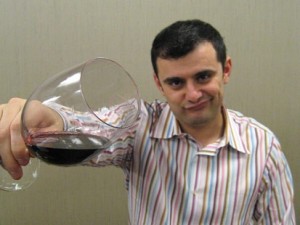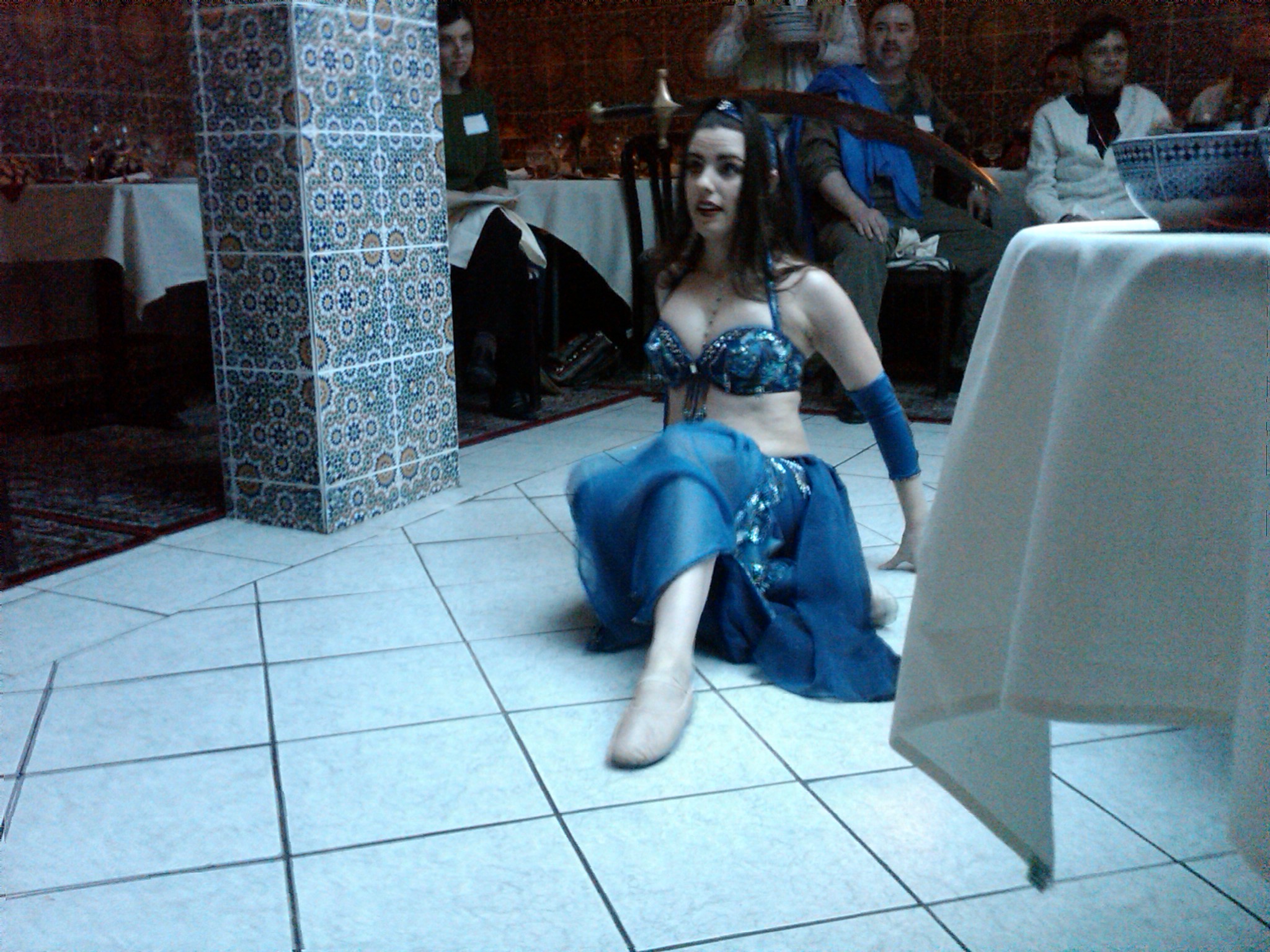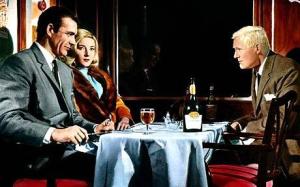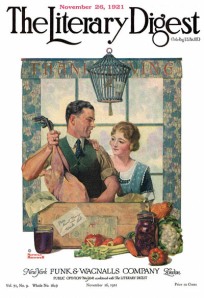Posts Tagged ‘wine and food pairing’
Does America Have "Poor Wine Self-Esteem"?

Does America Have Poor “Wine Self-Esteem”
I saw the awesome Gary Vay – Ner – Chuk on his #aucrush #crushit “Crush It” book tour this past Wednesday at American University’s Kogod College of Business. I wasn’t just seeing Gary to hear about his book, but frankly I had a bit of an agenda: I wanted to promote my own book “I Drink on the Job” on his fun web show Wine Library TV (I have good news at the conclusion of this Blog Post!). Since I obviously wanted to draw some attention to myself in an audience of 200+ mostly college students, I wanted to ask a relevant question about wine to get Gary’s point of view. I was so excited/thrilled when the Moderator pointed at me to ask a question, I literally jumped up in the air, I was really pumped up by the show!
My question for Gary was about American’s “confusion” with wine and what he thought the problem was. In usual Gary fashion, probably the most quotable man in the wine business as well as all of Wine 2.0, he spewed out one-liners like “We’re stuck on 16 adjectives”, “People have no wine self-esteem”, and “I’ve seen grown men sweat at a business dinner..” His key point was that there’s a lack of what he calls “wine self-esteem” in the U.S. I thought this was something to delve into further because it’s one of the main reasons that I wrote my book “I Drink on the Job”.
According to Wikipedia Definition “Self-esteem”: “Self-esteem” is a term used in psychology to reflect a person’s overall evaluation or appraisal of his or her own worth. According to Gary Vaynerchuk of Wine Library TV WineLibraryTV, his newest book “Crush It” Crush It and many other entrepreneurial ventures, this is the biggest “problem” among American wine consumers today. Here’s the UStream Video of the event Gary Vaynerchuk Video at AU Crush It (I’m at about the 36th minute, he definitely noticed me!).
Throughout my book, I mention episodes of tension with American wine consumers in the real world. Examples include the woman who almost fainted when she found out I had purchased wines with screw top closures for her corporate event, the gentleman who almost went ballistic when I suggested that Robert Parker may not in fact be a “wine God”, and the woman who would not accept a pour of wine from me – at a wine tasting! Throughout my twelve year career in wine, I have experienced so much wine anxiety that I think Gary hit it right on the head – it’s actually American’s lack of “wine” self-esteem. Much of the proof of this is anecdotal, but when I teach TasteDC’s TasteDC Website wine course Wine Basics 101, I get the same questions over and over again: what do the “legs” of wine mean, is a more expensive wine a better wine, how long should a wine age, etc. There’s absolutely nothing wrong with the questions, in fact, I think it’s very healthy to have strong curiosity about wine. I think the problem is that too many people believe there is in fact a right and a wrong answer. Too many wine professionals portray wine as something “difficult”, “complicated” and “mystical” – why else would they “de-mystify” wine? You only de-mystify, what is a mystery. What if wine professionals simply told new wine consumers to try a wine first and see if that person gains pleasure or to make wine part of daily meals? I spend over 200 pages in my book “I Drink on the Job” portraying wine as an everyday staple – drink it every day with your meals and the mystery disappears like the secrets to a magic trick. Once you get past the “illusion” of wine, it becomes an enjoyable part of your day, and a way to improve the pleasure of your meals.
As I always like to say: “Drink first, ask questions later”..but of course, I’m..
Charlie “I Drink on the Job” Adler
What Wine Goes with PB&J?

They don’t stress much about drinking New Zealand wines in France – there is plenty of great wine in a French person’s backyard. So why is it Americans stress out so much about choosing the right wine with say a French dish like Ratatouille when a French wine from say the Languedoc would work fine? What is it as Americans that we expect from a wine and food pairing – a result of perfection where we can tell all of our compatriots how we successfully completed a veritably impossible task, matching the flavors of a dish with an unknown wine? Maybe we should study up on the world of wine, learn more about the intricacies of Gruner Veltliner from Austria and how it’s put this varietal on the map, or maybe we should read a few books on wine and food pairing to avoid that embarassing faux pas when we mistakenly ordered a Brut Champagne with our P,B &J when it should have been at least Extra-Dry or even sweeter? Oh, why can’t this be so much easier, why can’t they just put little labels on food telling us what goes and doesn’t go, why do we have to use our feeble brains??
That’s because the French eat French food everyday, and guess what wine they drink with it? French – their wine goes great with their dishes, eat up! This is all part of that horrifically difficult to explain “terroir”. Most of what you read and hear about terroir in wine circles relates to the location the vines were grown, but you rarely hear about the producer side of the equation, what I like to call “Pride in Ownership”. The tradition of drinking and eating local products created the pride in ownership that is part of terroir and what makes localities compete to make the best products. Just like a New Yorker will bitch to no end about how bad the bagels are outside of New York (must be the water?), a Frenchman will claim that their regions chevre (goat cheese) is better than even the neighboring villages. That cheese comes from a local goat, which was fed on local grasses and vegetation and its manure was used to fertilize the vines, or possibly it ate the weeds between the vines. The French drink French wine most of the time as do the Italians and the Spanish not only because it’s cheaper for them and readily available, but they connect emotionally with their own produced wine and cuisine. Being fussy about wine doesn’t make sense because it’s something consumed with everyday meals, normally lunch and dinner. You eat local and you drink local because you know what tastes best.
Americans are still developing our pride in our own products and sometimes it embarasses us – once I was at a French Burgundy wine tasting early in my career at TasteDC in Washington, D.C. and I mentioned half-jokingly that one of the wines might taste great with a good cheeseburger and french fries – I got a look like I had just committed a sacrilege! Wine was meant to be consumed with “real” food, not casual foods that were not worthy of their lofty reputations. I had offended the American luxury ethic – thou shalt not enjoy any luxury without tight-lipped apprehension – how dare I, Charlie Adler, a non-wine expert at the time, attempt to create an unofficial food and wine pairing! Call in an expert, food and wine pairing is rocket science, you need a degree in oenology even before you should be allowed to remove the cork!
OK, this seems a bit facetious, but if you had been consuming wine in the 90’s, you met quite a few people with sour puss demeanors. Even the idea that someone would pair wine with something as mundane as a sandwich, much less a PB&J was considered to be preposterous and very uncouth. Times have changed, wine is prevalent and available everywhere from supermarket and in some cases to the corner 7/11. You don’t need a degree to enjoy wine with food, just do what the French do – eat and drink local. So now that I’m serving Virginia ham with some local cheeses, I’ll choose a wine that..wait, isn’t ham salty and that will have a chemical effect on tannin? Well then, I better not choose a wine that’s too tannic, it will..
Charlie “I Drink On the Job” Adler
Red Wine with Fish
How important is wine and food pairing as part of the wine tasting/learning experience? Whole chapters have been written about this subject, even books, so one might assume that it’s mandatory for wine drinkers to understand all the nuances of food and wine pairing before they start opening bottles of wine. I mean, you don’t want to be embarrassed like the fellow above in the James Bond From Russia with Love who gave away his lack of sophistication and his cred’s when he chose a red wine to be consumed with fish – a 1960’s faux pas, definitely a sign of poor upbringing, he probably attended public schools, the shame!!
A recent article which was Tweeted to me over at “tastedc” brought new light to the subject or at least rang true to my ears –Perils of Food and Wine Matching. Essentially, this article introduces a classic wine dilemma – what if a wine doesn’t taste very good on its own, but when paired with food, it is fantastic, sort of 1+1=3? Is the wine good or bad? And what about creativity and innovation in wine and food pairing, do we want to have people memorize and repeat like Zombies rules that may be outdated like “white wine with fish, and red wine with meat”, and “Chablis with oysters”? The dilemma seems to be that people often believe that there is in fact a right or wrong wine choice, and if they get it wrong, they will somehow suffer for the mistake. It’s already difficult enough getting started consuming wine, I mean you have unintelligible foreign labels, combined with strange/confusing terminology like “on the lees” or “39% new French Oak”, plus thousands of choices, now you add the question “what food fits best with this wine?” to the equation, and frankly, I can imagine why most people skip wine and stick with beer!
I have a whole chapter on wine and food pairing in my upcoming book I Drink On the Job, but I still want to state for the record that I think wine and food pairing doesn’t matter much – yes, there are excellent pairings, but as often as not, I’ve found by breaking the rules, you can actually discover better pairings. How did I know when I opened a bottle of a $9 bottle (2000 price) Virginia Cabernet Franc that it would go excellent with my Szechuan Beef? Of course I love the traditional Sauvignon Blanc with goat cheese, but one time I had it with a very untart example, and the wine went flat. And how about a wine with a little sweetness like an off-dry German Riesling that went reasonably well with sushi, but really was fantastic when I added the pickled ginger to the equation! How many combinations of food and wine are there anyway, do we actually expect people to memorize them BEFORE they actually unscrew the cap of wine and start imbibing? I think not!
I say, break all the rules and let people start from scratch. I’m no patriot, but the stodgy old wine and food rules are just that, restraints on the individual’s right to experiment and frankly get it wrong. I say purposefully “unmatch” the food and wine, Get a big, bold red wine and pair it with oysters, eat a goat cheese with Port, try a steak with a white Burgundy, see what happens. As part of this experimentation, I taught the wine portion of a TasteDC (www.tastedc.com) class on American Cheese 101 class I put out inexpensive samples of Prosecco, Sauvignon Blanc, Chardonnay, Chianti and Cabernet Sauvignon and I told the audience that I wouldn’t suggest any combinations until the participants had tried the cheese and wine pairings FIRST! It may have seemed that I was torturing the attendees (I’m notorious for pushing the envelope and getting attendees a tad bit out of their “comfort zone”) but all I was trying to do was see if any light bulb appeared above people’s heads, if anyone jumped out of their seat and yelled “Eureka, this combination is Fantastico!” or if faces looked bitter and unpleasant after an especially bad pairing. Interestingly, neither happened, except for the one wine “pro” in the class who was confident of her decisions (thank you Ellen for your observations!), everyone pretty much looked to the “wine expert” (me!) for a nod of approval or disapproval.
Conclusion: Wine and food pairing is not particularly important, but because most Americans find wine to be pretty much a total enigma, they don’t trust their own senses yet. Time will tell, and hopefully with more Americans consuming wine over the coming years, we will see more interesting wine and food combinations, and for that matter, beer and food, whisky and food, and even Sake and food..Cheers!
Charlie “I Drink On the Job” Adler
Do You Need a Wine Professional for a Private Wine Tasting?

Belly Dancer with Sword at Moroccan Cooking Class
Is It Impossible to Match One Wine With Thanksgiving Meal?
One of the most published wine articles in the U.S. is how to pair the perfect wine with the Thanksgiving Turkey and fixings. This is truly next to impossible to do, what with the flavors at the table which go from subtle or even bland turkey (standard Butterball, Organic, Free-Range, Heritage?) to super sweet and fruity cranberries. Add to this the fact that every family seems to have it’s own take on the meal: oyster stuffing, fried turkeys, sweet potato pie with marshmallows baked on top, etc.. So what is your best bet for pairing wine with this traditional meal?
I like to drink wine with pretty much every meal, but not everyone in my family cares for wine, in fact some family members don’t drink at all! If you live in DC, most likely you’ve caught the wine bug and you love to drink with your meal, but maybe your Uncle Ted or cousin Martha is not really a wine lover and prefers jug wine or white zinfandel out of a box, so this is the first hurdle – who’s going to be sharing the wine with you? My solution: provide a cheap $10 or under a bottle of wine that is a well-known brand, one bottle of white like Chardonnay and one bottle of red like a Cab or Australian Shiraz, and keep the bottle of wine you like under the table – it’s your private stash! If somebody protests, simply give them a pour of your wine. If there are other serious wine lovers around, by all means share, that’s what wine, family and Thanksgiving are all about!
So which wine goes best with turkey, gravy, stuffing, cranberry salad, roasted vegetables, mashed potatoes, sweet potato pie, etc..? With such a myriad of flavors, no wine could match all the robust flavors at the table, so wine rule number 1 applies: simply drink a wine you really like..if you’re not satisfied with that answer, always choose wines in the middle range of flavors when you have a broad range of food flavors. For example, a light white wine might get overtaken by all the fattiness on the table and a big Cabernet will overwhelm pretty much all of the subtle flavors. On the other hand light-bodied to medium-bodied red wines like Beaujolais (Nouveau is fine for this meal), Sangiovese, Tempranillo and Pinot Noir are less tannic than Cabernet and often marry well with a variety of flavors. If you like white wine, then Riesling with a touch of residual sugar (off-dry) really does a nice job with a variety of flavors like the sweetness and tanginess of cranberries and the wine’s acidity can cut through the fattiness of gravy. Chardonnay will work in a pinch, maybe a less oaked one will show best, but I find if there are any smokey foods, than oaked Chardonnays work fine. Gewurztraminer? I’ve heard this goes with Thanksgiving a million times, but the fact that it’s such a rich and sometimes overwhelming fruity and can also be a bitter wine, I think it just overwhelms everything. Plus, there aren’t that many affordable and good Gewurz’s sold, so why put yourself into a corner?
A good inexpensive sparkling wine definitely gets everyone in a great mood, goes really well with fatty/greasy foods, and sets the tone for celebration. Rather than spend a fortune on good Champagne, go for a less expensive Cava from Spain or even a slightly sweet Prosecco from Italy – for under $15 a bottle you can enjoy them without breaking the bank!
On dessert wines – they tend to be expensive even when you consider they normally come in half-bottles. If you’re having dessert sweets, skip the dessert wine as a pairing, I find dessert wines paired with sweets to be overwhelming and frankly take away the pleasure of dessert wines. On the other hand, dessert wines make a nice nightcap if you’re not hitting the Scotch or Cognac, maybe a good idea if people are hitting the road! BTW – please watch out for people who are drinking too much, especially if they’re driving – definitely make sure they don’t get in the car inebriated..
Have a happy Turkey from..
Charlie “I Drink On Job” Adler

